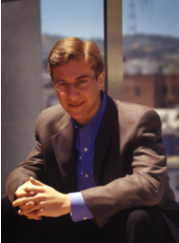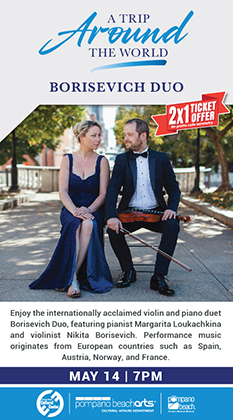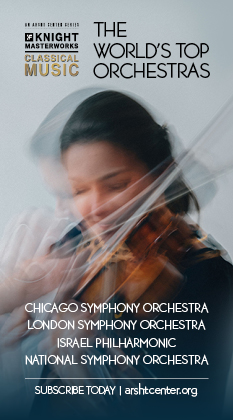MTT makes rare appearance as pianist in substantially Scandinavian program

When musicians attempt to conduct from the keyboard or concertmaster’s chair, the results are sometimes successful, sometimes a crude expedition in which everyone seems happy just to begin and end at the same time.
But when Michael Tilson Thomas put down his baton and sat down at the piano Friday for Mozart’s Piano Concerto No. 23, produced a buoyant and finely nuanced performance with the New World Symphony, revealing aspects of the work that rarely come through in concerts and recordings.
As a pianist, Tilson Thomas was more self-effacing than brilliant, treating the piano as a prominent but not necessarily leading instrument of the orchestra. At times, such as the vigorous sequences of arpeggios in the last movement, when his hands run from one end of the keyboard to the other, he held back too much. But by showing such sensitivity to the orchestra, he brought out nuances of the work that come through in few performances, blending in with winds and strings in a way that brought out a lot of Mozart’s music that is often lost.
 The concert opened with an energetic performance of Grieg’s Peer Gynt Suite No. 1 led by the orchestra’s conducting fellow, Edward Abrams. Like the violinists, horn players and other musicians of the New World, Abrams is a recent conservatory graduate, in his case the San Francisco Conservatory and Curtis Institute of Music. In leading Peer Gynt, he took on the formidable challenge of finding something fresh in a work that in some sections is as familiar as the William Tell Overture.
The concert opened with an energetic performance of Grieg’s Peer Gynt Suite No. 1 led by the orchestra’s conducting fellow, Edward Abrams. Like the violinists, horn players and other musicians of the New World, Abrams is a recent conservatory graduate, in his case the San Francisco Conservatory and Curtis Institute of Music. In leading Peer Gynt, he took on the formidable challenge of finding something fresh in a work that in some sections is as familiar as the William Tell Overture.
The opening Morning Mood section breathed with naturalness and elegance of phrasing, preventing it from sinking into the static somnolence that frequently attends this movement. In the third section, Solveig’s Song, the strings played with richness and sensitivity, creating a softly luminous atmosphere. But it was the work’s best-known movement, In the Hall of the Mountain King, that was most impressive. The movement crackled along, and the huge crescendo, as the music accelerates to express the hero’s encounter with a gang of mountain trolls, was a wild and satisfying musical expression of adventure and violence.
In the second half, Abrams led the orchestra in Sibelius’ rarely heard tone poem Oceanides, drawing expressive playing in particular from the strings, as they seemed to portray the rising and falling of the waves.
Tilson Thomas returned to the podium for a performance of Sibelius Symphony No. 3, giving a rustic and vigorous performance of the Finnish composer’s least-often played work in the genre. The last movement didn’t build to as much of a climax as in other performances. But in the first and second movements, the orchestra’s wind section showed itself to be a real center of excellence. The New World turns over about a third of its members every year, as the musicians complete their three-year fellowships and move on to jobs in the outside world, and the winds this year play with real beauty and richness of tone, and a technical ease that allowed the focus to be on bringing out the music.
The concert repeats 7:30 p.m. Saturday and 2 p.m. Sunday. Call 800-597-3331 or go to www.nws.edu.
Posted in Performances
Leave a Comment
Sat Jan 9, 2010
at 12:10 pm
No Comments



